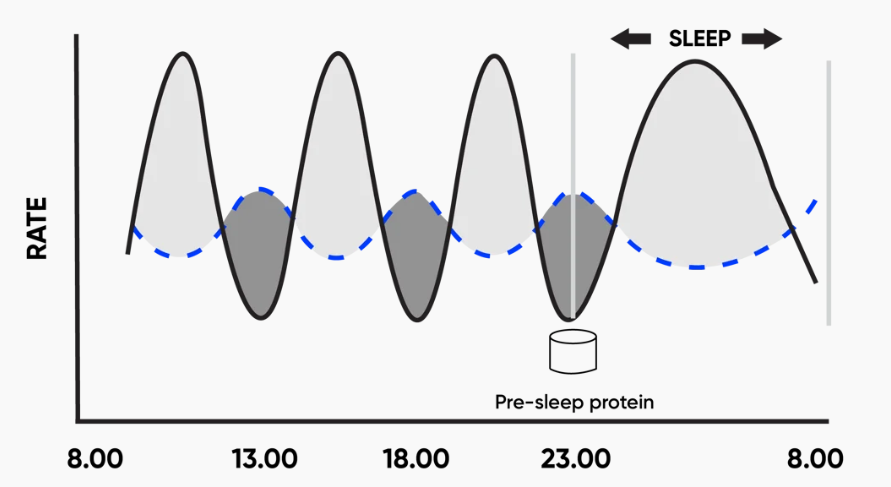
Casein: The Slow Protein For Overnight Recovery and Muscle Support
Overnight recovery
Casein makes up 80% of the protein in milk (whey being the other 20%) and has gained more attention in recent years for its nutritional and functional benefits.
As a high-quality protein from milk – and the major the protein in a milk protein concentrate or isolate – casein has a high level of essential amino acids (EAA), accounting for almost 50% of the protein, in a form that is highly digested and absorbed by the human body. While the leucine content is not as high as its partner, whey protein, it is still higher than other dietary protein sources.
muscle protein synthesis
Muscle is constantly turning over, with cycles of muscle building and breakdown happening throughout the day and night. The overnight period has traditionally been a time of fasting, and therefore muscle breakdown, but research in recent years has looked at whether delivery of nutrients (particularly protein) during this period could favorably influence muscle protein synthesis.

Figure 1. Schematic representation of the process of muscle protein synthesis and muscle protein breakdown throughout the day.
Due to the slower absorption kinetics, casein is often used as the main protein source in overnight recovery products. Since this is generally the longest period of the day without nutrient delivery, casein can provide prolonged delivery of amino acids when consumed before bed. This could be particularly beneficial certain groups of the population who have higher protein requirements or struggle to consume enough protein during the day, such as those engaged in heavy training and the aging consumer (who has a naturally reduced appetite).

Figure 2. Plasma leucine, branched-chain amino acids, essential amino acid, and total amino acid concentrations in the fasting state and after the ingestion of 25 g: micellar casein or native whey protein in healthy young men.
Studies have shown that pre-sleep consumption of 40g casein can increase muscle protein synthesis (Trommelen and van Loon, 2016), with recent work demonstrating that this tactic can also increase the production of muscle connective tissue in older adults undergoing a resistance training program (Holwerda et al, 2021).
Joy et al (2018) also demonstrated that nighttime consumption of 35g casein was as effective as daytime casein intake at increasing strength and muscle building, in response to a 10-week resistance training program. With the resistance training taking place in the morning, this study demonstrated that looking at overall 24hr nutrition is important, rather than just focusing on nutrient delivery straight after an exercise bout.
While there is limited data regarding the effect of nighttime protein consumption on metabolic parameters, Allman et al (2020) found no difference in lipolysis (breakdown of fats by the body) whether casein was consumed during the day or pre sleep, highlighting that “pre-sleep protein is a viable option for increasing protein consumption in resistance-trained women because it does not blunt overnight lipolysis, and will therefore likely not lead to increases in subcutaneous abdominal fat.”
In conclusion, casein is a slowly digested, high-quality protein that can be utilized pre-sleep to favorably influence muscle protein synthesis, and be a key part of 24hr nutrition intake.
Actus Nutrition CasPRO® Range
Actus Nutrition has developed the CasPRO® range of casein and caseinates, delivering the functional and nutritional benefits of high quality protein that works across applications. For more information, please check out our website or reach out to a member of our team.